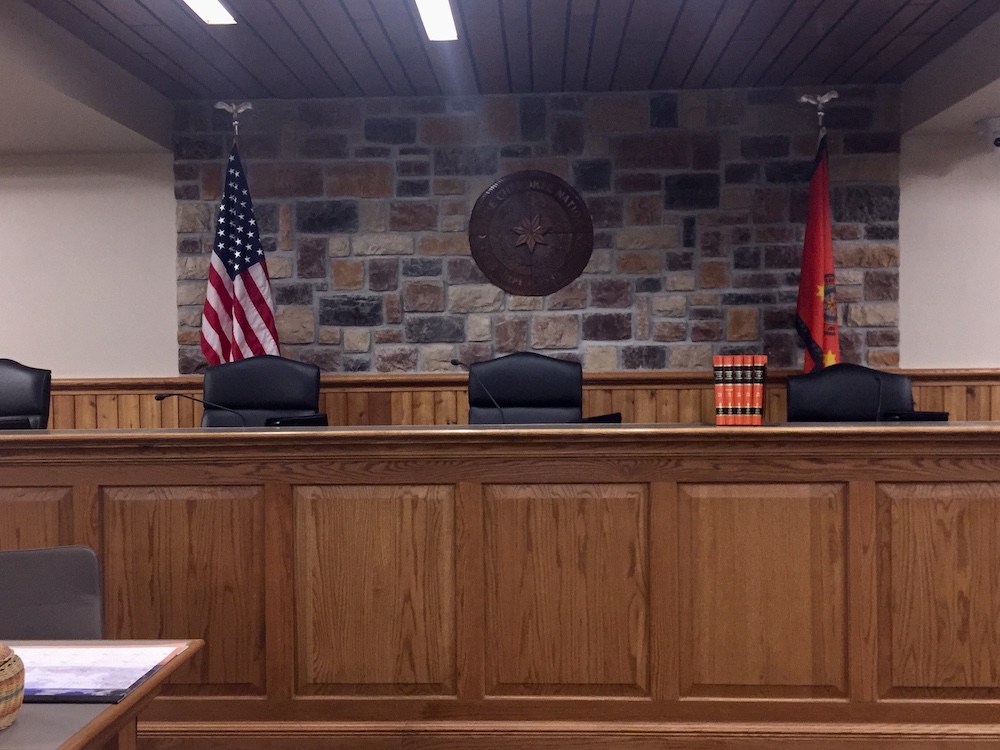
- Details
- By Tribal Business News Staff
Cherokee Nation has reached an $80 million settlement with the federal government to resolve claims of trust resource mismanagement during the 20th century.
Principal Chief Chuck Hoskin Jr. and Deputy Chief Bryan Warner announced plans to use the settlement funds to construct new judicial facilities across the tribe's 7,000 square-mile reservation.
"Today, on behalf of the Cherokee people and our ancestors, we celebrate long sought justice for the mismanagement of our resources by the United States in the 20th century," Hoskin said in a statement.
The settlement stems from a 2016 lawsuit filed under then-Principal Chief Bill John Baker, which alleged the U.S. government failed to properly manage and account for the Cherokee Trust Fund. The fund included proceeds from land sales, coal leases, oil and gas development, and other tribal assets.
Hoskin and Warner have proposed legislation to the Cherokee Nation Council to build a justice center in Tahlequah that would house the tribe's Supreme Court, district court, and attorney general's office. The plan also includes funding for an additional district courthouse at a location to be determined.
"Generations of injustice have given way to a new day of justice," Warner said in the statement. "It is fitting that we use these settlement funds to strengthen our own justice system at a time when we need more strength than ever."
Council Speaker Mike Shambaugh noted the significance of addressing historical wrongs. "For too long the United States undermined our tribal sovereignty and failed to manage and account for our natural resources," he said.
The Council will consider the proposed use of funds at its January 30 Rules Committee meeting.
Can we take a minute to talk about tribal sovereignty?
Our mission draws from the warrior spirit that has sustained Indigenous peoples for generations — the same spirit that drives us to stand guard over tribal rights through relentless investigation and fearless reporting.
Sovereignty isn't just a concept – it's the foundation of Native nations' right to govern, protect our lands, and preserve our cultures. Every story we publish strengthens tribal sovereignty.
Unlike mainstream media, we center Indigenous voices and report directly from Native communities. When we cover land rights, water protection, or tribal governance, we're not just sharing news – we're documenting our living history and defending our future.
Our journalism is powered by readers, not shareholders. If you believe in the importance of Native-led media in protecting tribal sovereignty, consider supporting our work today.
